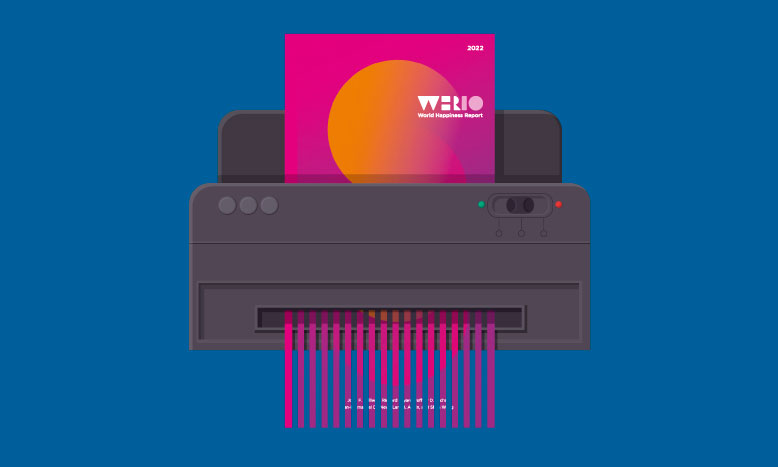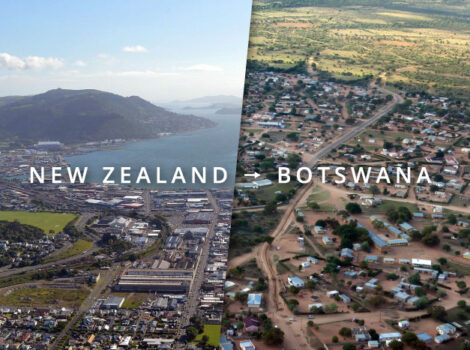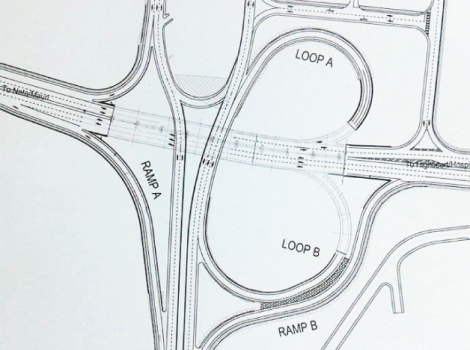The 2022 World Happiness Report recently came out, and as usual, Botswana found itself languishing in the bottom five least happy countries in the world. Afghanistan, Lebanon, Zimbabwe, Rwanda and Botswana are supposedly the least happy countries in the world.
I have personally never been a fan of these reports because I strongly believe happiness is relative and what constitutes happiness will differ vastly from one country to the next as well as from person to person. Interestingly, I asked some of my students what defines happiness, and one answer in particular resonated with me: Happiness is a state of mind. This response gave me pause, and while I genuinely believe there are far more miserable countries in the world than my native Botswana, my countryfolk do love a good moan, and this may well be the reason Botswana is reportedly one big cloud of doom.
Botswana is far from perfect, and having visited and lived a few countries, some in Europe, I can confidently say some people in Botswana have absolutely no clue. And because this demographic tends to be among those who’ve never experienced life beyond Botswana borders, they feel the grass is greener elsewhere. You only have to go through some of the comments on social media where Batswana never cease to bad mouth their country, how depressing a place it is and so on. So, based on this, I guess the student who said happiness is a state of mind hit the nail on the head where Botswana is concerned. It wouldn’t matter how much more we had than others around the world, I think Batswana will always whinge about one thing or the other. As tragic as it may sound, we have it down to a fine art!
While we were scouring the worldwide web for factors that determine how happy or sad a country is, we came across this brilliant New York Post article by Kyle Smith dated March 22, 2017. While it may be a few years old, it poses the questions we’ve always wanted the answers to.
So the numbers are in on whether we’re better off than in the George W. Bush years. Take it away, United Nations: “The USA is a story of reduced happiness. In 2007 the USA ranked third among the OECD [Organisation for Economic Co-operation and Development] countries; in 2016 it came 19th.” Thanks, Obama! With numbers like those, “Make America in the top 15 again” would have been a winning slogan.
That’s one tidbit from the World Happiness Report (WHR) produced by the United Nations recently and treated by the (rest of the) press with the same combination of awe and devotion that greeted the average papal bull in the Middle Ages. Yet this report is mostly rubbish.
The UN report averaging self-reported happiness scores from 2014 to 2016 says that the happiest countries on Earth this year are, in order, Norway, Denmark, Iceland, Switzerland, Finland, the Netherlands, Canada, New Zealand, and, tied for ninth, Australia and Sweden. Let’s just pause here to marvel at the false precision of stating that two countries are exactly equal in happiness. The US finished 14th.
Here’s a problem: Happiness surveys don’t even agree with one another. Surveys are supposed to be reporting news, but how useful would your newspaper be if it gave conflicting reports for the numbers on the stock market, the weather and the Yankees box score? A 2012 Gallup survey on happiest countries had a completely different list, with Panama (!) first, followed by Paraguay, El Salvador, Venezuela, Trinidad and Tobago, Thailand, Guatemala, the Philippines, Ecuador and Costa Rica.
A Pew survey of 43 countries in 2014 (which excluded most of Europe) had Mexico, Israel and Venezuela finishing first, second and third, with the US in the top 10 but barely beating Vietnam and Colombia. Huh? In that same survey, here are some of the other countries that beat healthy, wealthy Japan: Argentina, Peru, Malaysia, Pakistan, South Africa and Nicaragua. Does anyone seriously think Nicaragua is a happier place than Japan?
These surveys depend on subjective self-reporting, not to mention eliding cultural differences. In Japan there is a cultural bias against boasting of one’s good fortune, and in East Asia the most common response, by far, is to report one’s happiness as average. In Scandinavia, meanwhile, there is immense societal pressure to tell everyone how happy you are, right up to the moment when you’re sticking your head in the oven. Longtime Scandinavian resident Michael Booth observes as much in his book on the subject, in which he points out that Danes and Icelanders ranked fourth and first in the world in use of antidepressants in an OECD survey. Booth, after living in Scandinavia for more than a decade, says that he’s never met a Dane who really believes Danes are among the happiest people.
You’d be wise to ditch the idea that happiness is an objective trait that can be compared across borders. And even measuring happiness within a single country over time may not yield much: China, according to the new WHR, is less happy today than it was in 1990. So as China’s ascended from a peasant nation to the second-largest economy in the world, with a GDP growth of 500%, it lost happiness.
Maybe the Chinese were too afraid of the authorities in 1990 to complain or maybe the Chinese happiness needle can’t be budged forward much, but there is no question that the average Chinese person is far better off today than he was in 1990.
No matter how carefully parsed the data may be, a survey based on unreliable answers isn’t worth a lot. You might as well run a survey based on asking the dudes of the world, “Who’s best in bed?”
What makes a happy country?
For the fifth consecutive year, Finland topped a list of countries evaluated on the well-being of their inhabitants.
“Really?” Finns ask.
When governments around the world introduced coronavirus restrictions requiring people to stand two meters apart, jokes in Finland started circulating: “Why can’t we stick to the usual four meters?”
Finns embrace depictions of themselves as melancholic and reserved — a people who mastered social distancing long before the pandemic. A popular local saying goes, “Happiness will always end in tears.”
But for five consecutive years, Finland has been named the happiest country in the world by the United Nations Sustainable Development Solutions Network, which publishes an annual report evaluating the happiness of people around the world.
The World Happiness Report uses data from interviews of more than 350,000 people in 95 countries, conducted by the polling company Gallup. The rankings are not based on factors like income or life expectancy, but on how people rate their own happiness on a 10-point scale.
“We believe that these subjective, or self-perceived evaluations are a more reliable way to tell how good life is,” said Shun Wang, professor of the KDI School of Public Policy and Management in South Korea and one of the authors of the report.
Questions included, “Did you smile or laugh a lot yesterday?”, “Did you learn or do something interesting yesterday?” and “Were you treated with respect all day yesterday?”
Other questions relate to trust. Someone who thought the police or strangers were “very likely” to return his or her lost wallet had, on average, a much higher life evaluation score than someone who thought the opposite, researchers found.
The authors came up with six categories to explain most of the difference in happiness between countries: gross domestic product per capita, social support, life expectancy, freedom to make life choices, generosity and perception of corruption levels. Dr. Wang said some results were surprising: Parts of Eastern Europe ranked relatively low on the list, despite having relatively good income levels, while in South America, the reverse was true: Happiness levels tended to be high, given relatively low income levels.
In Finland, a relatively egalitarian society, people tend not to be fixated on “keeping up with the Joneses.”
“People often do pretty well in social comparison,” said Antti Kauppinen, a philosophy professor at the University of Helsinki.
“This starts from education; everybody has access to good education. Income and wealth differences are relatively small.”
David Pfister, an architect from Austria who lives in Oulunkyla, a suburb of Helsinki, said that he would describe Finns as content, but that it was hard to say if they were happy.
“The baby has increased our happiness,” said his wife, Veera Yliniemi, a teacher.
Another man in the same suburb, Janne Berliini, 49, said he was happy enough. “I have work,” he said. “The basic things are in order.”
People in Finland also tend to have realistic expectations for their lives. But when something in life does exceed expectations, people will often act with humility, preferring a self-deprecating joke over bragging, said Sari Poyhonen, a linguistics professor at the University of Jyvaskyla. Finns, she said, are pros at keeping their happiness a secret.
All of the countries that ranked in the top 10 in 2021 — including the four other Nordic countries — have different political philosophies than in the United States, No. 14 on the list, behind Ireland and ahead of Canada. Lower levels of happiness in the United States could be driven by social conflict, drug addiction, lack of access to health care and income inequality, Dr. Wang said.
Things in Finland are far from perfect. Like other parts of the continent, far-right nationalism is on the rise, and unemployment is 8.1%, higher than the average unemployment rate of 7.5% in the European Union.
But there is a lot about Finland that is, indeed, great. The country’s public school system, which rarely tests children, is among the best in the world. College is free. There is a good universal health care system and child care is affordable. And Finland has been one of the least affected European countries by the pandemic, which experts attribute to the high trust in government and little resistance to following restrictions.
Heikki Aittokoski, an international affairs correspondent at Helsingin Sanomat, the biggest daily Finnish newspaper, said that what struck him, after travelling to countries including Britain, Bhutan, Costa Rica, Botswana, Denmark and the United States to research happiness for a book, was the ordinary aspects of Finnish life that he had taken for granted.
For example, people trust each other, he said. Each morning, it is common in Helsinki to see children as young as 7 walking by themselves with their backpacks to school, feeling completely secure.
“That epitomises the Finnish happiness,” Mr. Aittokoski said. “There’s something we’ve done right.”
What do you think of the annual World Happiness Index? What is happiness to you? Have you ever taken part in the survey? Please share your thoughts.
What makes a World Happy by Jenny Gross and Johanna Lemola (April 20, 2021)
Sources: https://nypost.com/2017/03/22/that-world-happiness-survey-is-complete-crap/ & https://www.nytimes.com/2021/04/20/world/europe/world-happiness-report-ranking.html




